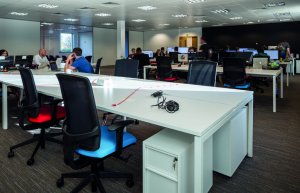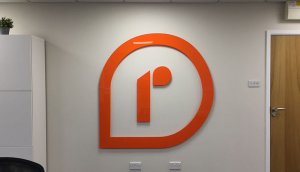It’s important to acknowledge that today’s workers are more discerning than ever before. Global analytics firm Gallup has tracked employee engagement since 2000 and in that time, global engagement has ranged between 12-20%. That’s dismally low, by any measure.
While disengagement remains a global issue, it’s compounded by the potent transparency of the Internet. Today, jobseekers have more access to alternative job opportunities and career pathways than ever previously imaginable. With increased options, attitudes towards work have naturally shifted in the past decade.
Another key point to make is that the 2007-2008 financial crisis dispelled any notion of job security, giving rise to a whole new category of precarious working arrangements. With employment contracts increasingly favouring the employer, it’s no wonder that length of tenure has tracked steadily downwards in the last decade.
By 2017, KPMG had reported the average length of time a millennial stayed in a role to have reduced to three years [ii]. Given that millennials and centennials make up 59% of today’s workforce [iii], that’s a huge proportion of the global labour market never to have known or expected job security.
With little expectation of a psychological contract, workers in the early 2020s have a much more consumerist attitude towards work. They prioritise their own needs over and above anything else. So, for a business, understanding its internal audience has never been more important.
Continuous learning, purpose and meaning at work, world-class facilities, hybrid/flexible ways of working and authentic leadership – these are just some of the things modern workers want.
Yet in parallel, it’s no longer possible to generalise. In the same way as marketing has had to adapt to embrace more complex, nuanced and micro-segmented audiences, today’s HR teams are challenged by the requirement to ensure that employee expectations are met throughout the entire employment lifecycle.
Modern workers expect progressive career pathways that reflect the heavy price paid for a university education. They want and expect continuous learning at work to reflect the rapidly changing external environment.
They want to work for authentic leaders who are willing to stand as a force for good in the world. In a recent study 65% of surveyed employees said they would be more likely to work for a company with robust environmental policies.
Learn more about how businesses can become more sustainable here.
They’re typically far more vocal than previous generations and will happily speak up if they don’t like what they’re seeing. Having a clearly defined purpose at work is paramount, regardless of the pressures this creates within the C-suite to have a well-communicated clarity of vision.
[i]
https://www.rec.uk.com/our-view/news/press-releases/jobs-recovery-tracker-rise-job-adverts-continues-run-christmas
[ii]
https://home.kpmg/content/dam/kpmg/uk/pdf/2017/04/Meet-the-Millennials-Secured.pdf
[iii]
https://www.weforum.org/agenda/2020/01/millennial-gen-z-talent-workplace-leadership/





